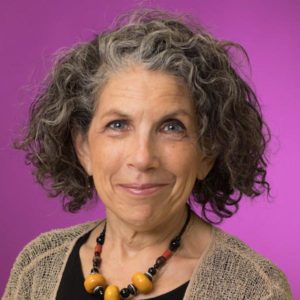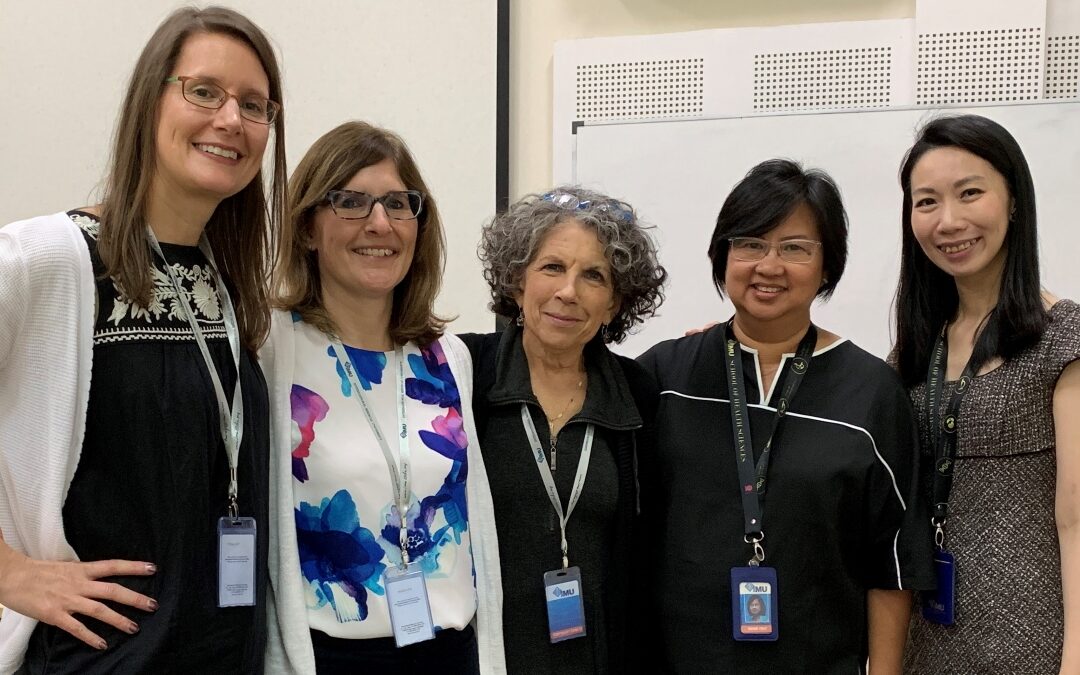Meet Our Faculty: In this Rutgers Global Health Institute content series, we highlight our core faculty members.
For Riva Touger-Decker, a longstanding interest in the impact of diet and nutrition on human health opened up a world of opportunities—including her ability to partner on training and education initiatives both locally and abroad. As a core faculty member of Rutgers Global Health Institute, she has a reputation for collaboration throughout the university and among its international partners.
She began her career as a registered dietitian in New York, and today her global focus is on capacity building and workforce expansion within the health professions. Touger-Decker’s international efforts historically focused on Japan and Israel and involved training dietitians in nutrition assessment. Currently, she is working with academic partners locally and in Malaysia, Tanzania, and Greece on a range of topics, including dietetics and nutrition, the role of communication and technology in health care delivery, and the relationships between discrimination and health inequities.
Other Rutgers Roles
- Professor, Department of Clinical and Preventive Nutrition Sciences, School of Health Professions
- Associate Dean for Global Affairs, School of Health Professions
- Professor, Rutgers School of Dental Medicine
A Growing Global Role
In 2004, Touger-Decker was invited to Japan’s University of Shizuoka to give a talk on nutrition-focused physical examination as part of the university’s work to expand the role of dietitians within the country’s health care system. After her talk, she was asked to collaborate with them on training students and faculty.
“That was my first foray into international work,” she says. “Dietitians in Japan were hungry to learn new techniques for nutrition assessment. So what originally was an invitation for one talk became four talks in one week—and a collaboration that lasted seven years.”
Enhancing the Impact of Dietitians in Israel
In Israel, Touger-Decker’s hands-on approach influenced changes in how patients are evaluated by Ministry of Health dietitians working in long-term care. In 2010, in partnership with the ministry’s geriatric division, Hebrew University, and faculty colleagues from Rutgers’ School of Health Professions, Touger-Decker developed and implemented a method of training dietitians to conduct a nutrition-focused physical examination when assessing patients. This exam is designed to help dietitians detect malnutrition and other health problems that can impact the patient’s nutrition status, including their ability to bite, chew, and swallow foods and fluids. Difficulties chewing and swallowing or decreased taste, for example, are issues that can lead to malnutrition in individuals, especially older adults living in long-term care settings.
Touger-Decker’s training programs, offered in 2010 and 2013, equipped more than 100 dietitians in Israel to perform the exam. “It was one of our strongest clinical training outcomes for teaching nutrition-focused physical examination to dietitians in another country,” she says, noting that the administration of the exam by dietitians in long-term care was subsequently written into the Israeli Ministry of Health’s standards of practice.
A Passion for Nutrition—and Teaching
As an adolescent, Touger-Decker was obese, she says. When a high school home economics teacher taught her the principles of nutrition, it piqued her interest in dietetics, which is the study of how food and nutrition affect health and, likewise, how health influences an individual’s nutrition status. Touger-Decker went on to become a registered dietitian (RD), a professional credential she earned after completing her undergraduate education and clinical training in nutrition and dietetics. She worked as an RD at hospitals throughout the tri-state area and served as a preceptor to dietetics interns from New York University, where she also taught as an adjunct faculty member and completed her master’s and doctoral degrees in nutrition.
“I derive so much joy from helping interns and students grow and succeed in becoming RDs,” she says of her NYU and Rutgers students, many of whom are now health care professionals in a wide variety of settings, including hospitals, research institutes, nursing homes, state and local governments, private practice, and academia. “They are capable of working with a broad array of patient issues, from pre- and postoperative nutritional needs to eating disorders, cancer, and other systemic diseases,” she says.
Her early experiences with students and interns fueled her desire to pursue a doctorate in nutrition so she could teach at the highest level. Her interest in the connection between nutrition and oral health led to her first faculty position, teaching nutrition at Rutgers School of Dental Medicine (formerly New Jersey Dental School), where she still serves as a professor. Today, she’s also the associate dean for global affairs at Rutgers’ School of Health Professions and a professor in the Department of Clinical and Preventive Nutrition Sciences. She was department chair from 2007 through June 2021, but her role has since shifted toward advancing the school’s global efforts.
The Joy of Collaboration
All of Touger-Decker’s global work has involved collaboration, a pillar of global health.
In 2020, for example, she and a colleague from Rutgers’ School of Communication and Information, Matthew Matsaganis, also a core faculty member of Rutgers Global Health Institute, were awarded an international academic partnership grant to support their engagement with universities in Greece. Their aim has been “to see where we might find common ground to grow international collaborations between Greek universities and Rutgers,” she says.
Despite pandemic-related travel restrictions, this opportunity has been fruitful. As a very early adopter of distance learning, Touger-Decker moved readily into the world of virtual collaboration. She and Matsaganis helped launch a series of e-symposia with two universities in Greece to examine common issues—among them discrimination and health inequities and the need for improved communication in the delivery of health care. Touger-Decker and Matsaganis also developed a study abroad program in Greece for the upcoming summer.
She relishes the opportunity to “work on a common goal with people who have common interests,” she says. “I may have the skills in the area they want training in, but I end up learning so much from them about different countries, cultures, and even other professions.”
– Leslie Garisto Pfaff
Top photo: In Malaysia in 2019, Rutgers School of Health Professions faculty Jennifer Tomesko, Riva Touger-Decker, and Rebecca Brody met with International Medical University collaborators Winnie Chee, dean of health sciences, and Seon Ting Chen, nutrition and dietetics program director (pictured from left to right).

